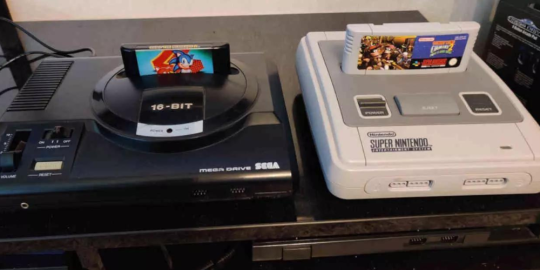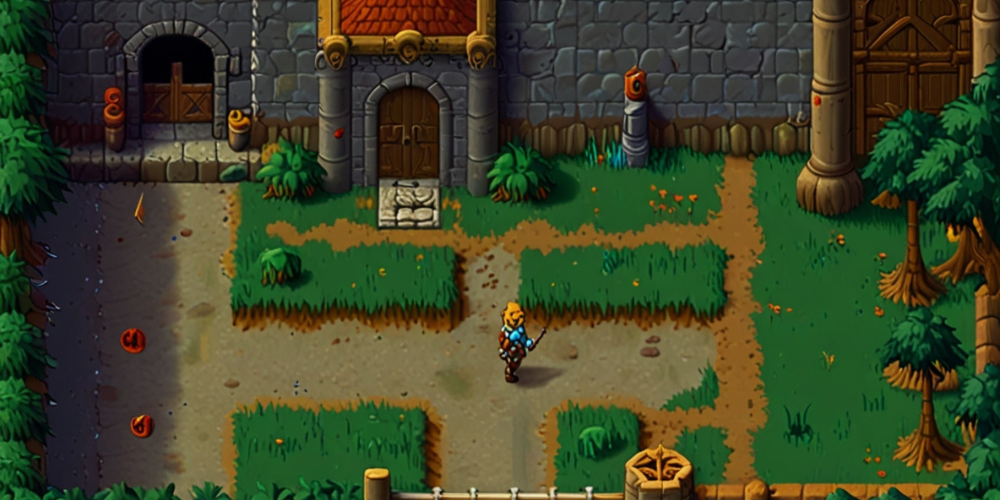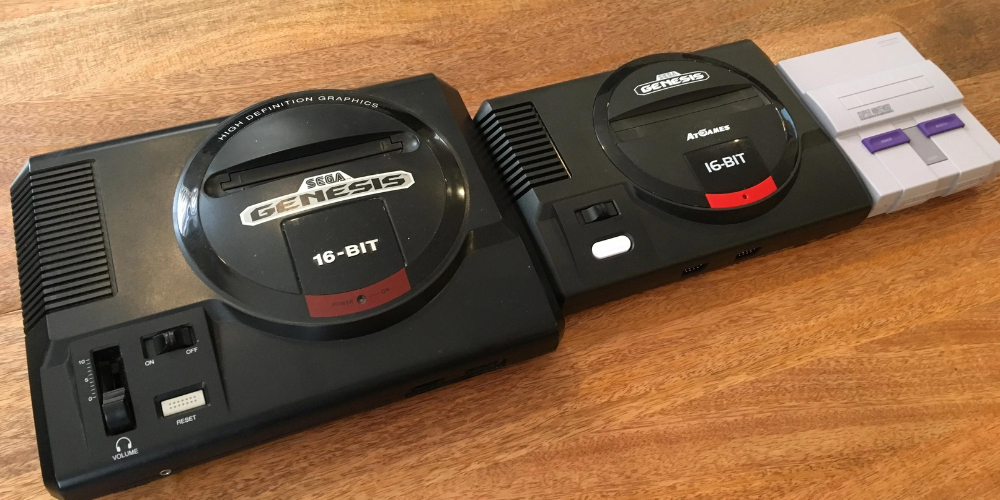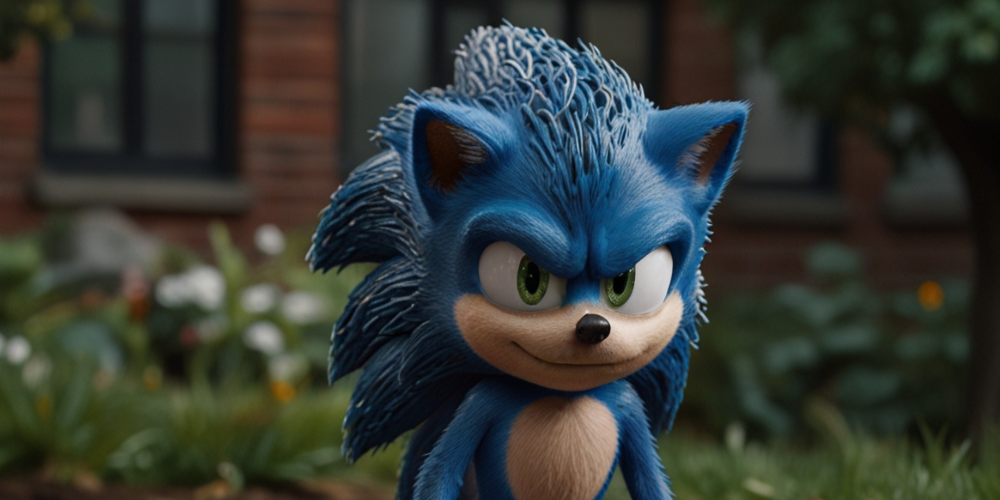
The Dawn of 16-Bit Legend
The early 1990s witnessed a momentous era in gaming history: the golden age of the 16-bit gaming consoles. At the heart of this digital Renaissance were two iconic systems, Nintendo's Super Nintendo Entertainment System (SNES) and Sega's Genesis. The intense rivalry between these platforms not only shaped the destiny of their respective companies but also defined a generation of gamers.
Technical Tale of the Tape
Understanding the differences between the SNES and Genesis requires a dive into their technical capabilities. The SNES boasted a processor speed of 3.58 MHz, which seemed sluggish compared to the Genesis's faster 7.67 MHz CPU. However, Nintendo's machine compensated with superior graphic capabilities, supporting more on-screen colors and higher resolution backgrounds, which allowed for detailed and vibrant visuals.
A Battle Won with Games

No console war can be won on specs alone; it is the library of games that ultimately captures hearts and market share. The SNES excelled with exclusive titles such as "Super Mario World," "The Legend of Zelda: A Link to the Past," and "Super Metroid." These games are celebrated not only for their innovative gameplay but also for their captivating stories, engaging characters, and rich, immersive worlds that draw players into epic adventures. They set a high standard for quality and left a lasting legacy that continues to influence game design to this day. Additionally, the SNES boasted an array of memorable RPGs, like "Final Fantasy VI" and "Chrono Trigger," which further enhanced its appeal among a diverse gaming audience who were eager for narrative depth and complex mechanics.
Marketing Maneuvers

Sega's marketing strategy for Genesis embraced a bold and confrontational approach, epitomized by the catchy and assertive slogan, "Genesis does what Nintendo doesn't." This punchy catchphrase was not merely a tagline but a declaration of Sega's confidence in its product and its direct challenge to the industry giant, Nintendo. By employing this slogan, Sega positioned the Genesis as the superior choice for a gaming community that sought edgier, more sophisticated content, distinguishing itself from Nintendo’s offerings, which were often perceived as being more appropriate for a younger audience or for family gatherings. The underlying message was clear: The Genesis was the console for the true gaming aficionado, promising a level of excitement and innovation that, Sega claimed, its rival could not match.
Nintendo, on the other hand, steadfastly cultivated a more inclusive brand image that appealed to a broad demographic, from young children to adults, emphasizing quality, wholesome entertainment suitable for anyone and everyone in the family. This difference in branding philosophies became a key battleground in the fierce competition between the two companies, known as the console wars of the late 80s and early 90s.
The importance of marketing in defining the console wars cannot be overstated. It was a time when the clever use of advertising campaigns, celebrity endorsements, and promotional events could significantly sway public perception and loyalty. Sega's marketing efforts, spearheaded by the "Genesis does what Nintendo doesn't" sloganeering, conveyed a sense of coolness and rebellion that resonated with the teenage and young adult gamers of that era—a demographic that was becoming particularly influential in the gaming market.
Those strategic moves were crucial in allowing Sega to carve out a sizable portion of the market and establish Genesis as a legitimate contender in an industry that had, until then, been largely dominated by Nintendo. Indeed, marketing was the weapon of choice in this console war, and Sega wielded it with an aggressive and memorable flair that continues to be recognized and discussed in gaming communities long after the initial conflict has subsided.
Sonic Speed vs. Mario Magic

The mascots for both consoles evolved into emblematic figures that transcended the realm of video games, embedding themselves deeply into the fabric of pop culture. Sonic the Hedgehog, with his lightning-fast gameplay and rebellious edge, encapsulated Sega’s bold and adventurous brand identity. His vibrant blue spikes and confident smirk became synonymous with a thrilling gaming experience that appealed to a younger, edgier audience.
On the other hand, Mario, with his whimsical and richly imaginative worlds, captured the hearts of gamers across generations. His undeniable charm and platforming mastery were pivotal in solidifying Nintendo’s enduring legacy in the annals of video game history. Together, these iconic characters were far more than mere mascots; they became legendary champions who valiantly represented their respective consoles in countless living rooms around the world. Their presence wasn’t just confined to the screens—they influenced a wide array of merchandise and television shows and even inspired fan communities, making an indelible mark on the global entertainment landscape.
Influence on Future Generations
The legacy of both consoles extends well beyond their own lifespans, significantly influencing numerous aspects of present-day gaming trends. This includes modern indie development styles, where developers often draw inspiration from the 16-bit aesthetic and gameplay mechanics pioneered during this era. Additionally, the resurgence of interest in retro gaming has led to virtual console releases that allow new generations to experience these classic titles, keeping their spirit alive.
Both Genesis and its contemporaries contributed substantial innovations to game design principles, such as intricate level designs, compelling storytelling through gameplay, and character development, principles that continue to be relevant and influential in today's gaming industry. Through these enduring impacts, Genesis and other consoles from its era have cemented their place as pivotal chapters in the history of video games.
Fans Decide Victory
In retrospect, trying to declare an objective winner in the battle between SNES and Genesis might miss the point—the real winners were gamers themselves who received an unprecedented bounty of top-tier gaming experiences across genres.. While sales figures show that globally, SNES eventually outsold its rival, loyal fans continue to debate merits based on personal nostalgia and preference rather than numbers alone.p // Summary Paragraph
In conclusion, while quantifiable metrics like sales can suggest one victor—the true measure may reside in indelible impressions left upon individual gamer memories by either system—solidifying both as celebrated pillars within video game history.p